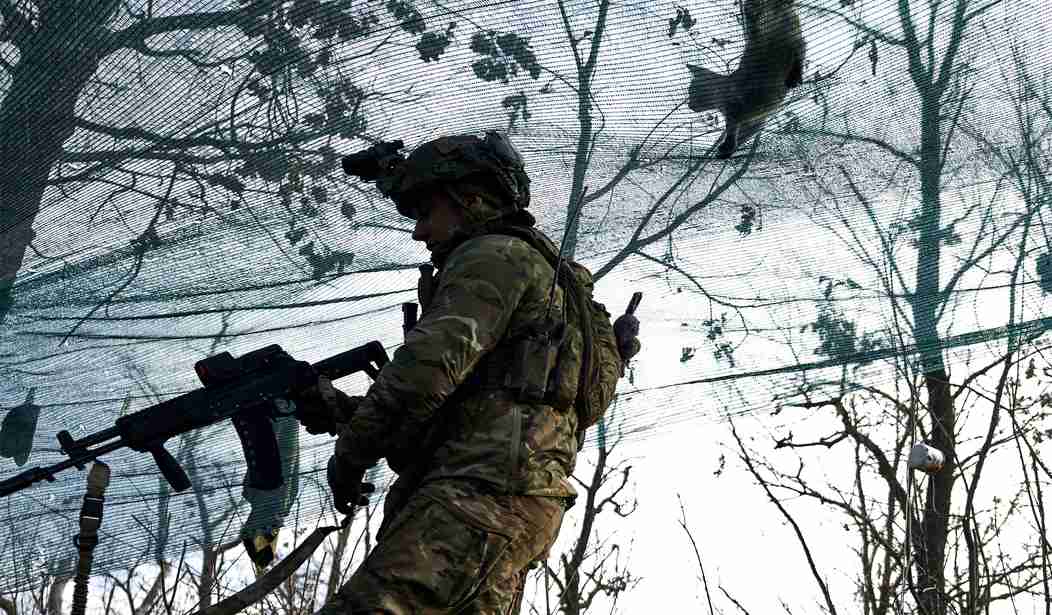Quagmire — the dreaded q-word — is now on the lips of some of my conservative friends and colleagues regarding the Russo-Ukraine War.
How completely inapt.
A quagmire doesn’t mean “a long war,” but a long war without an outcome either side can force. The Russo-Ukraine War might very well end up a quagmire, but neither Russia nor Ukraine is there yet.
Vietnam was a quagmire. The dreaded “domino effect,” where all of formerly French Indochina might fall under Communist rule, actually did come to pass in 1975 — but didn’t much affect our national security. As a maritime power, our proper defensive line in the region was at Subic Bay in the Philippines, not in the rice paddies of South Vietnam.
Afghanistan was a quagmire, a war that continued for no reason, long after our initial objectives of punishing the Taliban and crippling al Qaeda operations in the area were completed. Essentially, we kept fighting because we’d kept fighting.
The Russo-Ukraine War just turned one year old. That is not by any measure even a long war.
About a year into our Revolutionary War, the British took the Port of New York. Nearly a year into the Civil War, the Union was routed at the First Battle of Bull Run. One year into the Second World War, Britain stood alone against Germany with no prospect of taking the fight back to the Continent.
Quagmires? No, let’s not be silly.
As Americans, our perspective is unrealistic at both extremes. We were tainted by the waste and folly of Vietnam and Afghanistan and spoiled by the unprecedented speed of the Gulf War. Today, a war that doesn’t even shed American blood turned one year old and we begin losing our patience.
Absent a swift Russian victory — which by April of last year was no longer in the cards — there was never going to be a rapid conclusion to this war. Russian strongman Vladimir Putin imagines there are existential stakes involved. He believes, in true paranoiac Russian fashion, that the West is out to destroy Russia. For him, this war isn’t merely about subjugating Ukraine, although that is certainly part of his maximalist goals. Just as importantly, however, Putin desires to destroy the postwar system that the US helped implement after 1945 to maintain the global peace.
From a recent Estonian — themselves no strangers to Russian oppression — Ministry of Defense report on the “Myths and Lessons” of the war:
Russia’s long-term strategic aims remain unchanged: to dissolve the rules-based world order. Putin has written and talked about this for the past 15 years, and Russia’s actions have brutally proved it. Re-establishing spheres of influence in Eastern Europe and recreating buffer zones are the key steps in turning the current international order around for Russia. This is the most important reason why Russian tanks rolled over the Ukrainian border on February 24, 2022, and why similar scenarios have unfolded.
That link is courtesy of CDR Salamander who reminds us, “Is Ukraine a perfect republic? No. It is a republic at war. Our republic was not perfect either as it fought to stand on its own.”
We received substantial outside help, too, as I’m sure you recall.
Recommended: Biden’s Inflation Is Crushing the Middle Class, No Matter What Stupid Lies He Tells
Ukraine President Volodymyr Zelenskyy is no saint, as I’ve written here before, and Putin is not the new Hitler. But Putin has made it quite clear, again and again, that his ambitions extend far beyond the Dnipro River that bisects Ukraine’s east and west.
If Putin imagines existential stakes, for Ukraine the stakes are existential. After the horrors of the Holodomor and other, lesser attempts at erasing Ukrainian national identity, Ukrainians understand precisely what Russian domination means.
Does that make Ukraine’s willingness to fight on a quagmire? No, let’s not be silly. Especially since they’re fighting so well. Russia’s winter offensive has been underway for weeks, causing massive losses and gains almost too small to measure — thanks to Ukrainian grit and Western aid.
Ukraine is a “far away country of which we know nothing,” as British PM Neville Chamberlain said about Czechoslovakia — immediately before turning that country over at Munich to Adolf Hitler’s tender mercies. What Chamberlain failed to appreciate, until it was too late, was that Hitler’s ambitions extended far beyond one smaller, weaker neighbor.
There are two endgames for the Russo-Ukraine War.
In the first, the West grows bored and impatient and denies Ukraine the weapons it needs to continue the fight. In that case, Ukraine is once again an oppressed subject of the Russian Empire, and Czar Vlad goes to work using his enhanced position to split NATO.
In the second, Ukraine maintains its territorial integrity — although perhaps only to its post-2014 extent rather than 1991 — and Russian losses are punishing enough to keep the bear caged for another 20 years. In that case, we’ll have bought, on the cheap, a generational handicapping of our number two geopolitical rival.
There is a third possibility but it’s no endgame. The West provides just enough assistance to keep Ukraine in the fight, but not enough to force Russia to agree to a peace.
Now that would be a quagmire.










Join the conversation as a VIP Member